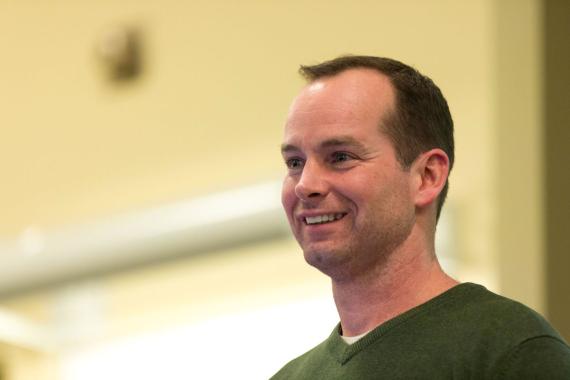By Sophie Watson, Contributing Writer, The Daily
The Law, Societies and Justice Department held a screening of the documentary “Life After Life,” directed by Tamara Perkins, on Wednesday evening in Smith Hall. The event was the first film shown as part of the series Human Rights at Home: Punishment in Contemporary America put together by the department along with the University of Washington Libraries and supported by the Friends of the Libraries Award. The series will show three films, one each quarter during the school year.
“In my experience, film is a very effective teaching medium,” LSJ professor Katherine Beckett said. “And I think we saw this today. It’s a much more intimate kind of real-life, textured portrait.”
The issues surrounding the prison system are something that the department wants to bring to the public’s attention. Specifically, they want to change the way people view incarceration.
“We are trying to frame [incarceration] in terms of a human rights issue,” said Emily Keller, the political science and public policy librarian. “We talk about human rights as something that happens in other countries, and incarceration is a human rights issue here in the United States. That’s something we want to emphasize.”
The documentary “Life After Life” follows the lives of three formerly incarcerated men (Noel, Harrison, and Chris) as they navigate life outside of the prison system for the first time as adults. All three men were incarcerated at a young age and spent decades in prison. Each of the men experience parole differently, from reuniting with family and finding work to enrolling in college.
“[This film] puts a human face on people who are incarcerated who otherwise might have a very negative stigma attached to them,” said Dolphy Jordan, who spoke after the documentary concluded. “When you hear about someone released from prison [many of whom] have committed a terrible crime, you dehumanize that person, and it’s easy to exclude them from the basic necessities we have in life.”
Jordan, after being incarcerated from the ages of 16 to 37, works as a re-entry transition specialist with the IF Project, a program that focuses on “intervention, prevention, and reduction in incarceration and recidivism.” After sharing his story with the audience, Jordan weighed in on the documentary.
Jordan went on to discuss the issues facing formerly incarcerated individuals and the struggles they face upon leaving the prison system. He emphasized the post-incarceration fear and uncertainty they feel and that the re-entry process needs to begin upon entry into prison. Part of that, he stressed, is providing opportunities to those previously incarcerated once they are released.
“The message [I want to impart] would be to treat people fairly. Allow people to have access — and I’m saying people so I’m not labelling someone who was formerly incarcerated, or labeling someone on race or from a different country,” said Jordan. “We’re all people, we all live in this community together, and what kind of community do you want to foster, to build? Do you want to build a strong and healthy one, or a divided, broken one? I would encourage people to give everybody fair and equal opportunities — to education, to housing, to employment.”
The next film in the series will take place during winter quarter and will feature the documentary “Solitary” by director Kristi Jacobson on maximum security prisons.
Reach contributing writer Sophie Watson at development@dailyuw.com. Twitter: @shwatsos
Link to The Daily article available here: http://www.dailyuw.com/news/article_ad245cda-d65a-11e7-80ae-833fc252451…;
